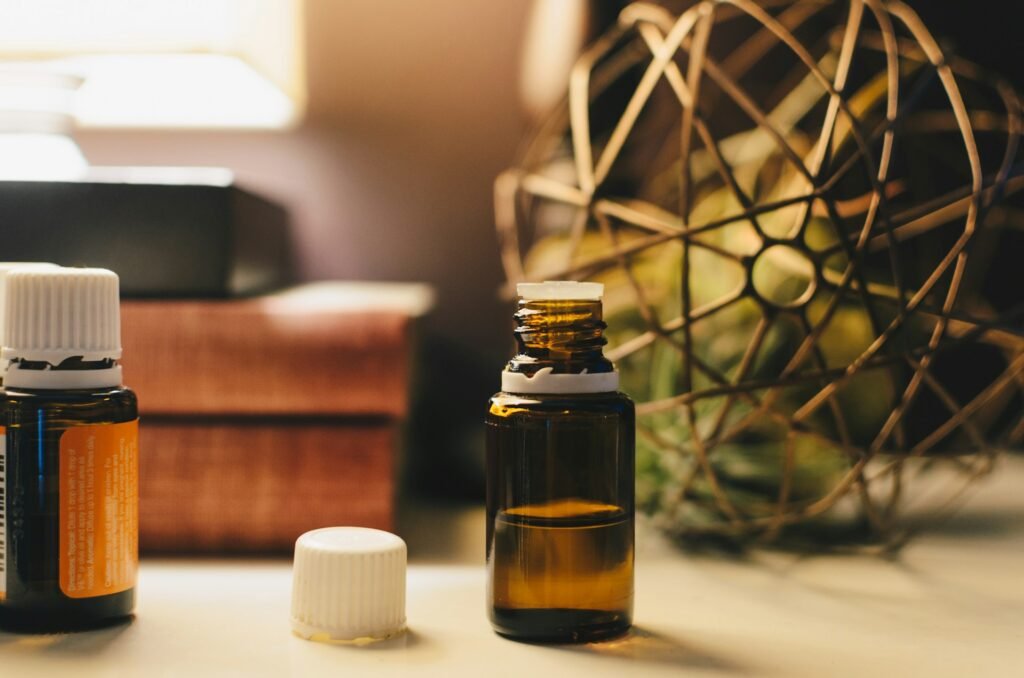
In an age where stress has become a daily companion for many, people are increasingly turning to natural methods like aromatherapy to achieve relief. But does inhaling essential oils truly help reduce stress, or is it just a placebo effect? Emerging scientific evidence supports the idea that aromatherapy and stress reduction are closely linked, with various essential oils showing promising results in lowering stress markers like cortisol levels and promoting relaxation.
Essential oils, including lavender, chamomile, and ylang-ylang, are frequently used in aromatherapy to target mental and physical stress. Their effectiveness lies in how they influence the brain’s emotional and hormonal centers, particularly the limbic system.
In this article, we’ll explore the role of aromatherapy in stress relief, delving into the scientific mechanisms that explain why essential oils can be a powerful tool for improving mental health and reducing stress.
How Aromatherapy Works: The Science Behind Stress Relief
The Connection Between Smell and Stress
The power of smell has long been recognized as a direct route to the brain. Aromatherapy works through the olfactory system, where the inhaled aroma molecules stimulate the limbic system—the part of the brain that regulates emotions, stress responses, and memory. When you breathe in essential oils, they bind to olfactory receptors in your nose, sending signals to the brain’s emotional centers.
This process directly influences the production of stress-related hormones, such as cortisol, the body’s primary stress hormone. Studies show that aromatherapy can lead to a significant reduction in cortisol levels, which helps in stress relief and induces a state of relaxation.
For a deeper understanding of the role of the limbic system in aromatherapy, read this detailed article on the limbic system and essential oils.
Essential Oils That Help in Reducing Stress
Various essential oils are specifically known for their ability to reduce stress:
- Lavender: One of the most popular oils for relaxation and calming the mind, lavender helps to reduce anxiety and promote deep relaxation.
- Chamomile: Widely used for its sedative properties, chamomile can lower irritability and ease mental tension.
- Ylang-Ylang: This floral oil is known for balancing emotions and reducing stress levels by lowering heart rate and cortisol.
The science behind these oils’ effectiveness lies in how they regulate the release of neurotransmitters and hormones associated with stress, such as serotonin and cortisol.
The Role of Cortisol in Stress and How Aromatherapy Lowers It

Cortisol: The Body’s Stress Hormone
Cortisol plays a key role in the body’s response to stress. When the brain perceives a threat—whether physical or emotional—it triggers the release of cortisol. This hormone prepares the body for the “fight or flight” response by increasing blood pressure and glucose levels. However, chronic stress leads to consistently high cortisol levels, which can damage health by increasing the risk of heart disease, depression, and anxiety.
By targeting the brain’s hormonal system, essential oils in aromatherapy help to reduce these elevated cortisol levels. A 2017 study published in the Journal of Alternative and Complementary Medicine showed that individuals who inhaled lavender essential oil had significantly lower cortisol levels compared to a control group.
Essential Oils That Reduce Cortisol
Here’s a table summarizing essential oils known for lowering cortisol levels:
| Essential Oil | Key Benefit | Scientific Evidence |
|---|---|---|
| Lavender | Reduces anxiety and stress | Shown to lower cortisol in clinical studies |
| Bergamot | Uplifts mood, reduces stress | Lowers cortisol levels and improves mood |
| Chamomile | Promotes calmness, reduces stress | Known for its anti-anxiety effects |
For more on how essential oils influence brain chemistry and hormones, you can refer to this article on how essential oils affect neurotransmitters.
Aromatherapy and Mental Health: A Natural Solution
Essential Oils for Mental Relaxation
Mental health and stress management are inextricably linked. Persistent stress can contribute to mental health disorders such as anxiety, depression, and insomnia. Aromatherapy offers a natural way to address these issues. Essential oils like lavender, frankincense, and geranium have calming effects that help ease mental strain.
Lavender oil, in particular, is recognized for its relaxation properties. In a study conducted by the International Journal of Psychiatry in Clinical Practice, lavender oil was found to significantly reduce symptoms of anxiety and depression. The results suggested that inhaling lavender oil not only reduced stress but also improved overall mood.
The Role of Aromatherapy in Long-Term Mental Health

Beyond immediate stress relief, regular use of essential oils in aromatherapy can contribute to better long-term mental health. By incorporating essential oils into daily routines, individuals can experience ongoing benefits like:
- Reduced anxiety levels
- Improved sleep patterns
- Enhanced emotional resilience
For further reading on how essential oils contribute to emotional well-being, visit this article on essential oils and emotional response.
How to Use Aromatherapy for Stress Relief
Diffusion: The Most Effective Method
One of the most common and effective ways to use aromatherapy for stress relief is through diffusion. Diffusers disperse essential oil molecules into the air, allowing them to be inhaled easily. Lavender and bergamot are particularly effective when diffused, as they quickly reach the brain’s emotional centers.
Topical Application and Massage
Another popular method is topical application. By diluting essential oils in a carrier oil, such as coconut or jojoba oil, you can apply them directly to pulse points, the back of the neck, or temples. This method is especially effective when combined with massage, which enhances the relaxation benefits.
Inhalation Techniques
For immediate relief from acute stress, simply inhaling essential oils from a bottle or using an aromatherapy inhaler can provide a quick calming effect. Oils like peppermint and eucalyptus can offer quick refreshment and stress reduction in moments of heightened anxiety.
The Broader Impact of Aromatherapy on Stress and Health

Physical and Emotional Benefits of Stress Reduction
Reducing stress through aromatherapy can have profound physical and emotional benefits. Lowered cortisol levels contribute to improved cardiovascular health, enhanced immune function, and better digestion. Emotionally, individuals report feeling more relaxed, less irritable, and better equipped to handle everyday challenges.
Incorporating essential oils into your wellness routine not only reduces stress but also improves mental health by enhancing emotional balance and reducing anxiety. For a deeper dive into how essential oils improve cognitive and emotional functions, read this article on essential oils and cognitive performance.
Supporting Scientific Evidence
Numerous studies support the effectiveness of essential oils in managing stress. A clinical trial published in Evidence-Based Complementary and Alternative Medicine found that inhaling essential oils significantly reduced stress in participants, as measured by decreased heart rate and lower cortisol levels. The growing body of evidence demonstrates the validity of aromatherapy as an effective, non-invasive method for reducing stress.
Conclusion
Aromatherapy’s role in stress reduction is supported by an expanding body of scientific research. Essential oils such as lavender, chamomile, and ylang-ylang have been shown to effectively lower cortisol levels, enhance relaxation, and promote mental well-being. Whether through inhalation, topical application, or diffusion, aromatherapy provides a natural, proven method for alleviating daily stress. According to the National Institutes of Health (NIH), lavender oil, in particular, has been extensively studied for its calming and stress-relieving properties.
As more people seek holistic approaches to stress relief, essential oils provide an accessible and non-invasive way to improve emotional well-being. By integrating these natural therapies into daily routines, individuals can experience long-lasting benefits for both mental and physical health. For more insights on the science behind essential oils and stress, visit this comprehensive guide.








